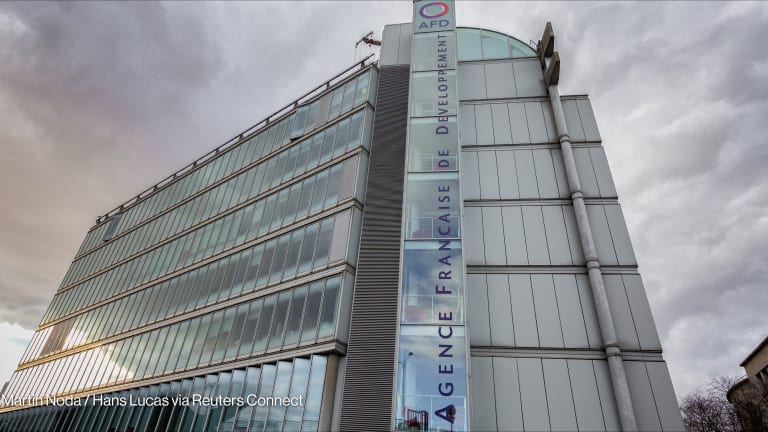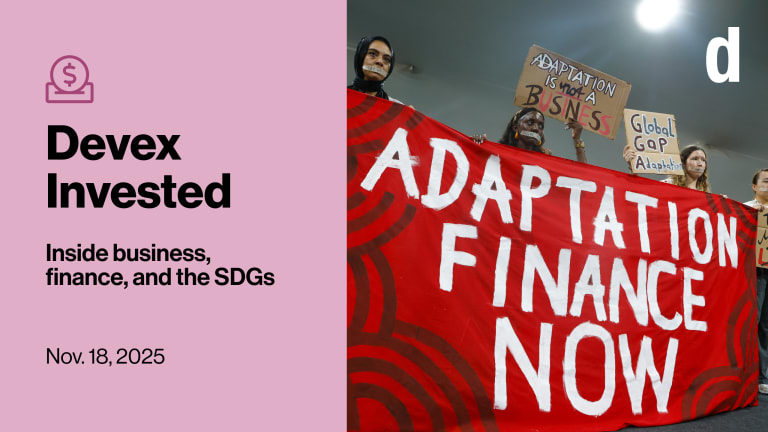
The Inter-American Development Bank’s annual meeting has concluded with a lot of promise for businesses in the region, from the establishment of a new Chinese cofinanced fund to a plan to streamline the activities of the bank’s private sector windows.
On Sunday, the bank’s board of governors tasked IDB to produce a proposal concerning the reform of its private sector operations. The deadline: Oct. 31.
The decision follows a report from the Office of Evaluation and Oversight, which underscored the potential with “better integration” of IDB’s private sector activities. At present, the bank has four private sector windows, each focused on a particular business sector. For instance, the Inter-American Investment Corp. focuses on small and medium-sized enterprises, while the Multilateral Investment Fund mostly supports microenterprises.
“It is essential that we transform, modernize and consolidate the IDB Group’s private sector windows,” newly elected IDB chair Frank de Lima said, arguing that the private sector is “an important engine” of the region’s economies.
An ad hoc committee, comprising representatives from IIC and MIF, will be given the responsibility to come up with the proposal. The bank’s next annual meeting will be held in Salvador de Bahia in Brazil.
Other notable highlights from the four-day event:
The People’s Bank of China approved the creation of a cofinancing fund that will provide IDB with additional resources for its public and private sector development projects. China pledged $2 billion in contributions to the fund: Up to $500 million in public sector loans for the next three years, and $1.5 billion for nonsovereign guaranteed operations (currently handled by the bank’s structured and corporate finance department) for the next six years.
The promise of trade and investment with the expansion of the Panama Canal was the highlight of a report released on Sunday (March 17). The canal, which turns a hundred next year, is already “running out of capacity,” operations chief Miguel Rodriguez said in a short video. The expansion, which would cost $5.2 billion, could generate more than 10,000 jobs.
Billionaire philanthropists Carlos Slim Helu and Bill Gates underscored the importance of public-private partnerships in reducing maternal and child health inequalities in Mesoamerica during a seminar titled, ”A New Way of Doing Health.” Both parties’ foundations are part of the initiative Salud Mesoamerica 2015, whose goal is to reduce infant mortality among the poorest in the region by 15 percent, among others.
Invest in labor market reform and infrastructure. This was a message of ”Rethinking Reforms,” the IDB 2013 macroeconomic report for Latin America and the Caribbean. With an expected average growth of 3.9 percent for the region over the next five years, “it’s crucial for countries to consider more structural measures to boost growth,” IDB Vice President for Sectors and Knowledge Santiago Levy said with the report’s launch on Sunday.
IIC will provide direct loans and techical assistance to export-oriented SMEs in Latin America and the Caribbean under an $80 million initiative launched Saturday (March 16). The goal: help SMEs “meet emerging international best practices in corporate governance.”
IDB opened nominations for the third edition of the Juscelino Kubitschek Award, which recognizes institutions that do “outstanding work” in promoting both economic and social development in the region. A total of $100,000 awaits winners. The deadline for nominations is June 17.
IDB President Luis Alberto Moreno announced ongoing talks between the the bank and Singapore. The topic on the table: Singapore joining IDB as its 49th member country.
IDB established a special multidonor fund aimed at supporting sustainable development programs. The bank initially provided $3 million for 2013 to finance grants, loan preparations, knowledge products, and capacity building.
Four energy companies, Agence Française de Développement and IDBsigned a memorandum of agreement to establish an electrical interconnection between Suriname, Guyana, French Guiana, and two northern sates of Brazil. Prefeasibility studies will be planned to assess the project.
A seminar on the directions in public-private partnerships in Latin America and the Caribbean looked at constraints and explored themes around new actors, new sectors and new sources of funding. Challenges for PPPs in the region include attracting international investment and government credit rating. Meanwhile, NGOs can play a role in PPPs as service providers.
A seminar talked about the future of broadband technology in shaping the development environment in Latin America and the Caribbean. Conversations center around how a more connected region could spur competitive and export-oriented businesses in the region.
Stay tuned for our exclusive interviews with international leaders who attended this year’s IDB annual meeting about hot-button issues in global development.
John Alliage Morales contributed reporting.
Read more development aid news online, and subscribe to The Development Newswire to receive top international development headlines from the world’s leading donors, news sources and opinion leaders — emailed to you FREE every business day.








